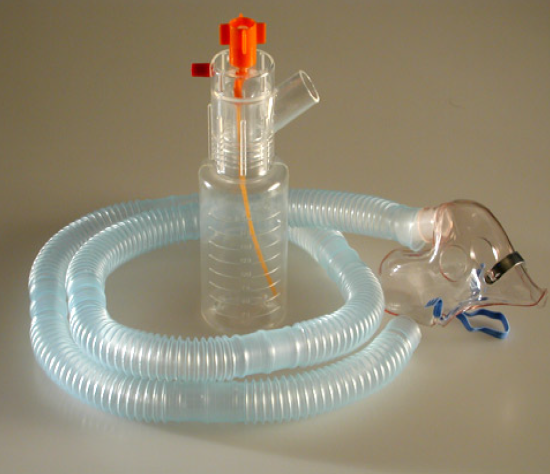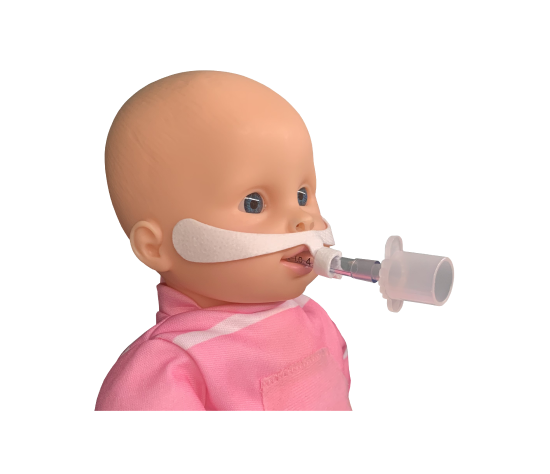In the dynamic world of intensive care units, a language often emerges, seemingly indecipherable to those outside its realm. Even for seasoned physicians, the acronyms and shorthand can be overwhelming.
One such term, Nasal CPAP (Continuous Positive Airway Pressure), often abbreviated as nCPAP, stands as a gentler alternative to mechanical ventilation.
Let’s delve into the intricacies of these two non-invasive airway support options, revealing their differences while demystifying the confusingly similar names.
Understanding Nasal CPAP Therapy
Continuous Positive Airway Pressure, or CPAP, serves as a lifeline for fragile ventilated patients in critical care units. This therapy delivers a mild, pressurized airflow through either nasal “pillows” or a mask, gently splinting delicate lung airways open.
Unlike mechanical ventilation, CPAP allows for spontaneous breathing, with the patient retaining control. The key lies in maintaining alveoli inflation during each breath, enhancing oxygen uptake without the need for forced ventilation.
CPAP proves effective in alleviating conditions such as atelectasis, apnea, and respiratory distress without the associated risks of sedation and intubation.
Today, CPAP’s applications span a wide range, from neonates transitioning after NICU ventilation (commonly known as bubble CPAP) to managing chronic conditions like sleep apnea. Pressure profiles and comfort settings are tailored to specific medical conditions and individual patient needs.
Breaking Down nCPAP: The Nasal Subset
The acronym nCPAP zooms in on a specific subset of nasal CPAP usage.
The “n” denotes “nasal,” specifying the anatomical interface delivering assisted breathing. While CPAP broadly indicates the use of masks and delivery modalities, nCPAP narrows the focus to a specific application – the delivery of pressures through small prongs into the nostrils instead of facial coverings.
The benefits of nasal CPAP include enhanced comfort, preserving the patient’s ability to speak, eat, cough, and clear secretions – crucial activities that accelerate recovery when transitioning off ventilation support.
The “n” in nCPAP signifies the less invasive and gentler route, emphasizing a patient-centered approach.
Distinguishing Differences: Nasal vs. Facial Delivery
One crucial difference lies in the delivery method – nasal CPAP applies pressures through either nasal pillows or masks, while nCPAP specifically targets the nostrils with small prongs.
The choice between the two hinges on patient comfort, clinical requirements, and the nature of the condition being managed.
Partners for Respiratory Care: Bandb-Medical Technologies’ Expertise
With over 30 years of experience in developing non-invasive ventilation interfaces, Bandb-Medical Technologies understands the nuanced language of respiratory care.
Whether it’s nasal or non-nasal, bubble or continuous, we recognize that the comfort and origin of the applied pressure are as vital as the amount for successful weaning.
Contact us to explore effective yet patient-friendly CPAP solutions customized to your critical care environment. Together, we ensure that even the complexities of terminology translate into straightforward paths to healing.
The Best Products We Offer
- Bubble CPAP
- Cpap For Newborn
- Neonatal CPAP
- Infant Cpap
- Bubble CPAP System
- Nebulizer
- continuous Nebulizer
- Large Volume Nebulizer
FAQs
Nasal CPAP broadly applies pressures through masks or nasal pillows, while nCPAP specifically targets the nostrils using small prongs, emphasizing a less invasive approach.
CPAP maintains alveoli inflation during each assisted breath, allowing for spontaneous breathing by the patient without the need for machines to take full control.
CPAP proves effective in alleviating conditions such as atelectasis, apnea, and respiratory distress without the associated risks of sedation and intubation.
nCPAP, delivering pressures through small prongs into the nostrils, preserves the patient’s ability to speak, eat, cough, and clear secretions, crucial for a comfortable and accelerated recovery.
With over 30 years of expertise, Bandb-Medical offers customized CPAP solutions that prioritize patient comfort, effective weaning, and overall respiratory care in critical settings. Contact us for insights into product selection and a simplified tracheostomy care journey.


